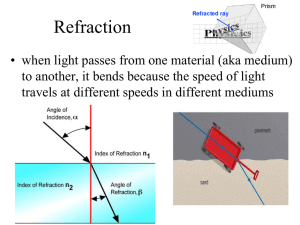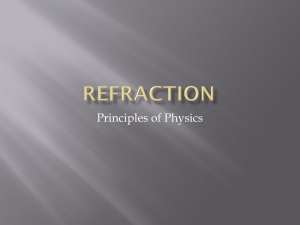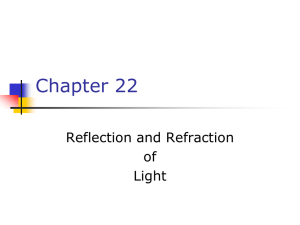Refraction
advertisement
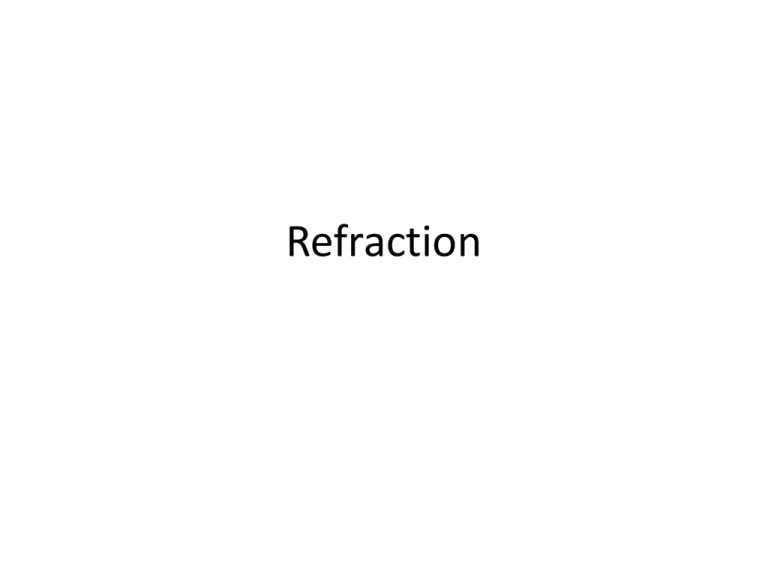
Refraction Definition: Refraction • Refraction is the movement of light from one medium into another medium. – Refraction causes a change in speed of light as it moves from one medium to another. – Refraction can cause bending of the light at the interface between media. To describe how much the speed of light is affected by going from one medium to another, we use index of refraction Index of Refraction • Refraction of light simulation • http://www.thegms.org/msfiles/refraction/Lig htRefract.html • What happens when light hits the boundary between two transparent mediums? 1) Part of the light is reflected – usually less than 5% 2) The rest is transmitted across the boundary - The transmitted ray has a different direction than the incident ray – it is refracted (bent at the boundary) - If the transmitted ray travels from a medium with a higher (n) value to a medium with a lower (n) value the refracted ray will bend away from the normal - If the transmitted ray travels from a medium with a lower (n) value to a medium with a higher (n) value the refracted ray will bend towards the normal • When the index of refraction decreases, light bends away from the normal. n1 > n2 1 n1 2 When n1 > n2 1 < 2 n2 • When the index of refraction increases, light bends toward the normal. n1 < n2 1 When n1 < n2 1 > 2 n1 2 n2 Snell’s Law n1 sinϴ1 = n2sinϴ2 Example: Snell’s Law A search light on a yacht is being used at night to illuminate a sunken chest. At what angle of incidence Θ1 should the light be aimed? Dispersion • The separation of white light into colors due to different refractive indices for different wavelengths is called dispersion. • Dispersion is often called the prism effect. Dispersion Which color of light has the greatest refractive index? Critical Angle Remember – when light passes from a medium with a higher (n) to a lower (n), the light will bend away from the normal • This drawing reminds us that when light refracts from a medium with a larger n into one with a smaller n, it bends away from the normal. n1 n2 n1 > n2 If the angle of incidence increases so does the angle of refraction - Critical angle is reached when the angle of refraction = 90o Critical Angle of Incidence Ray reflects instead of refracting. c • Instead of refraction, total internal reflection occurs when the angle of incidence exceeds the critical angle. n1 r = 90o n2 n1 > n2 Calculating Critical Angle n1sin1 = n2sinϴ2 Example: Critical Angle The drawing shows a ray of light whose angle of incidence is Θ1= 68.3o, traveling through two solid materials and then undergoing total internal reflection at a solid-liquid interface. What is the largest possible index of refraction for the liquid?
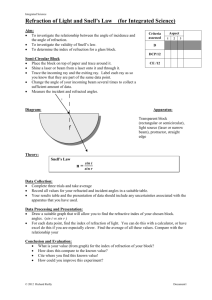
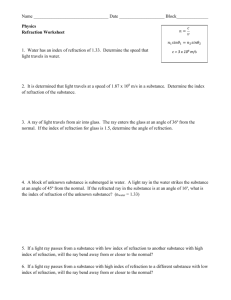
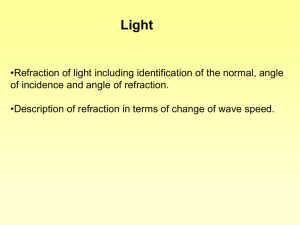
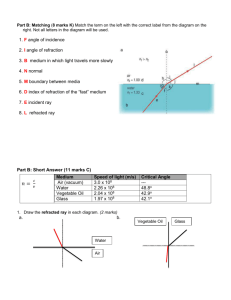

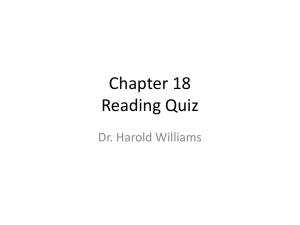
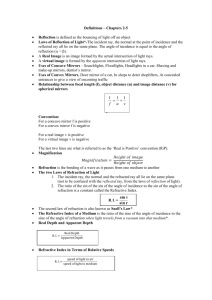
![Critical_Angle_Lab[1]](http://s3.studylib.net/store/data/006771055_1-29e8188e0c615c22d7a5e501336c0a3c-300x300.png)
